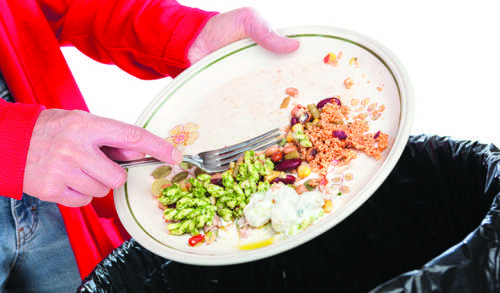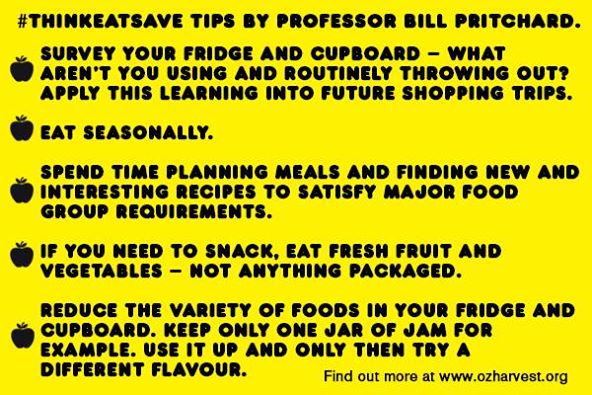Do we all waste too much food?

How much food do you waste in your house? During my childhood we were raised to only cook what you needed, to eat all the leftovers, and not to waste food. My family never had a whole lot of money to waste on expensive food when I was young, and what we did have was valued. That’s not to say that we liked eating our veggies or anything, but we certainly didn’t waste the amount of food we do today. Food was rarely bought in such large quantities that it was allowed to perish. Breakfast was eggs from the chickens or simple items like Weet-Bix or toast, never expensive sweetened cereals except on school holidays. Lunch was nutritious but never overly packaged food. Afternoon tea after school was the bananas that were overripe baked into cakes or made into milkshakes or vegetables from dinner the night before mashed up and spread on toast with cheese on top. It was never fancy commercially baked cakes or such unless there was special guests coming over. And dinner was meat and three veg, with several nights of the week being “leftovers” nights. In fact for many years, some meals were made to feed us for two nights in a row. It seems like a different world to today.
I was sitting back reflecting on this in the knowledge that the Oz Harvest “think.eat.save” day was held this week, a national day to drive people to think more about food wastage and draw attention to our rather unsustainable food culture. It got me wondering whether our over sixties here have become as unsustainable with their food as I think many in the younger generations have?
For the last six weeks my family has been trying to shop for groceries more efficiently and waste less food in our house. With three young children it is often difficult to scrimp on food, but we’ve found clever ways that are chiefly born from the learnings from simpler times. We’ve done everything from shopping at ALDI to see if we could save a few dollars, to meal planning, that we have rarely been known to do. We’ve tried to cook meals that last two days, and we’ve been purposely packing lunches for work and eating less packaged or pre-prepared foods. It might seem logical to most of you, but it is amazing how little of this we were actually doing previously, allowing the unsustainable ways of rushing around, buying too much when convenience shopping only to find it is wasted when we forget to eat it.
The organisation Oz Harvest was founded back in 2004 and has last year launched their Think.Eat.Save. day which was held on July 21. They are working hard to bring attention to the disturbing amount of food wasted in Australia and around the world where roughly one third of human food produced gets wasted along the way.
Our modern day challenge is to create a sustainable food culture that can be shared by all, where we waste less at all levels of food production and distribution,” Kahn said.
The organisation, when it began lobbied Government to change the legislation around the collection and reuse of perishable food, allowing businesses to locate quality excess food and providing a collection and delivery service to charities operating in Sydney, Adelaide, Brisbane, Gold Coast, Melbourne and Newcastle. They collect food from all types of food providers including fruit and vegetable markets, supermarkets, hotels, wholesalers, farmers, stadiums, corporate events, catering companies, shopping centres, delis, cafes, restaurants, film and TV shoots and boardrooms.
Most of us are not in a position to affect the donation of perishable food in large quantities that might help others in need unless we work in a food outlet. But what we can affect is our own shopper behaviour and wastage of food. And so I ask you today… Are you doing the best you can to eat sustainably, both for your budget and for the best use of food resources? Do you actively eat your leftovers and whip up meals with the food you have bought before it perishes or do you find yourself wasting food unnecessarily with unsustainable behaviour?
Have you noticed your behaviours changing over the last decade or two with commercialisation? What can we do to reverse this?










 Proudly Australian owned and operated
Proudly Australian owned and operated